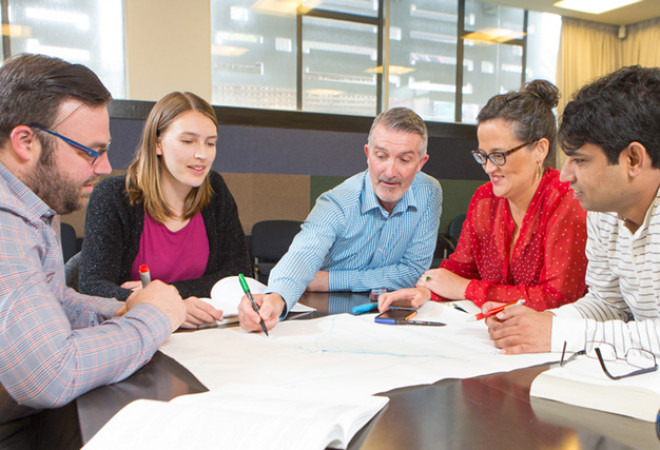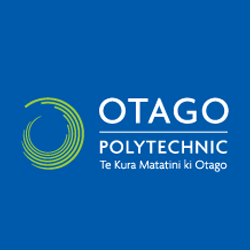
Critical success factors in inter-Institutional project collaborations
Status
Completed: 30 April 2015
Project Details
A one-year project, completed in 2015, to evaluate collaboration experiences within multi-organisation projects with the purpose of determining the factors that contribute to successful project teams and sustainable communities of practice. A collaboration of Bay of Plenty Polytechnic, Wellington Institute of Technology and Otago Polytechnic.
Aims:
The main aims of the project were to:
- address gaps in both organisational knowledge and the literature about inter-institutional collaborations and what makes them reach, exceed, or fail their potential to deliver long term value and benefits to participants
- summarise the learnings from project teams’ experience of collaborative work to produce a resource for future teams.
Methodology:
A four-phase enquiry was conducted, comprising:
- a document analysis of all completed Regional Hub Project Fund (RHPF) projects to determine those which had involved inter-institutional project teams
- a literature review
- an online survey (34% response rate)
- interviews with invited participants.
Research questions:
- What makes inter-institutional collaborations successful and how is success best measured?
- How many collaborative projects have led to successful and on-going professional communities, and do participants see this as a desirable outcome?
- What are the uses and benefits to members of successful collaborations/communities, and to their organisations?
- What factors account for the sustainability of inter-institutional collaborations, and how can these be built into projects and be fostered?
- How do successful project collaborations lead to improvements in teaching and learning, and directly contribute to learner benefit?
Team

Dr Judith Honeyfield
Project leader
Toi Ohomai Institute of Technology
Fiona Breen
Wellington Institute of Technology (WelTec)
Mervyn Protheroe
Wellington Institute of Technology (WelTec)
Victor Fester
Otago Polytechnic
Cath Fraser
Consultant
Independent ContractorStatus
Funding
$20,000.00 (excl GST)
Key Findings
The key project findings were:
- A high value was ascribed by participants to being part of an inter-institutional collaboration regardless of whether they considered their particular partnership to have been a success. For some, the involvement of project partners from external organisations came about entirely because of a desire to strengthen the funding application, and a number of informants described how they came to see this as one of the highlights of their experience. They enjoyed professional conversations with new networks of colleagues, and engagement with professional communities of practice.
- Most of the factors which participants named as important to ensuring effective collaborations need to be addressed and implemented before the group’s work proper actually begins. That is, the determination of how the group will operate, who will do what, and how control and benefits will be shared, all need to be discussed openly by the team, rather than hoping that assumptions are shared and that all will go to plan.
- There were considerable shifts in practice which occurred during and after participants’ involvement in their inter-institutional collaborative project. New learnings and understandings were valued, shared and applied in the classrooms, in teachers’ uptake of further professional development opportunities, in dissemination of project outputs, and in new collaborative ventures. Participants spoke about personal enrichment and a renewed satisfaction with their work role and environment, sometimes taking up leadership roles where they would have felt unprepared in the past.
- The majority of participants were still collaborating with some or all members of the original team in activities such as research, resource development, co-authoring, co-teaching and co-presenting, meaning that just over half the collaborative networks developed through the RHPF projects were sustainable and had led to long-term significant and tangible benefits for team members.
- The results from this study indicate that the opportunities created through collaborative projects are enriching and reinvigorating the working lives of educators who may otherwise be limited by the confines of their job description, and that everyone is benefitting: the individuals themselves, the organisation, and especially the learners.
Key Recommendations
Successful collaboration | Successful collaboration projects involving members from multiple organisations share some common traits: they plan ahead and develop strategies for managing how and what they will achieve in the shared project; while working towards their objectives they monitor and evaluate their own performance as a group; and they build on the relationships and learning that occur to explore ongoing professional opportunities.
A research report prepared by Cath Fraser, Judith Honeyfield, Fiona Breen, Mervyn Protheroe and Victor Fester.
(PDF, 1.5 MB, 40-pages).
- 4 May 2015
A guide prepared by Cath Fraser, Judith Honeyfield, Fiona Breen, Mervyn Protheroe and Victor Fester.
(PDF, 3 MB, 13-pages).
- 4 May 2015